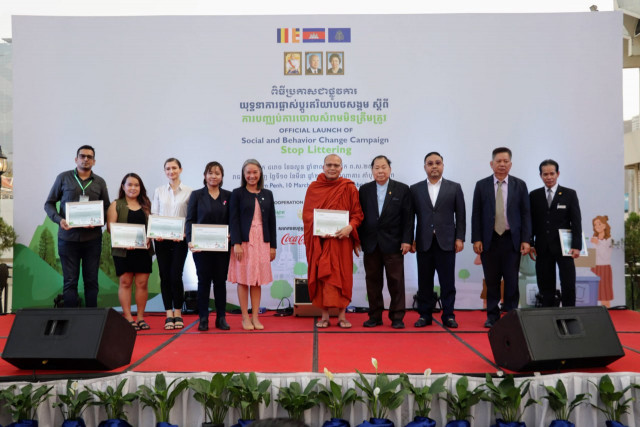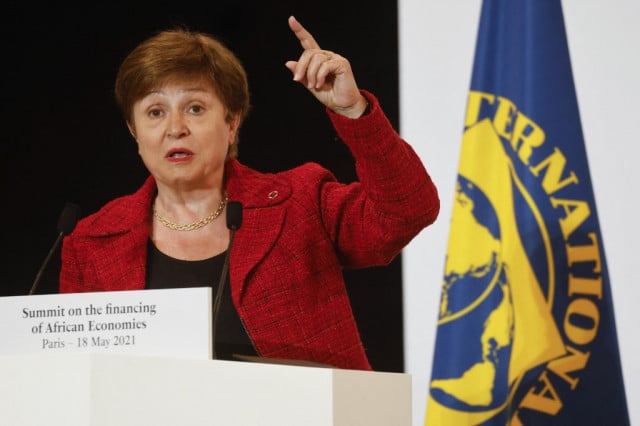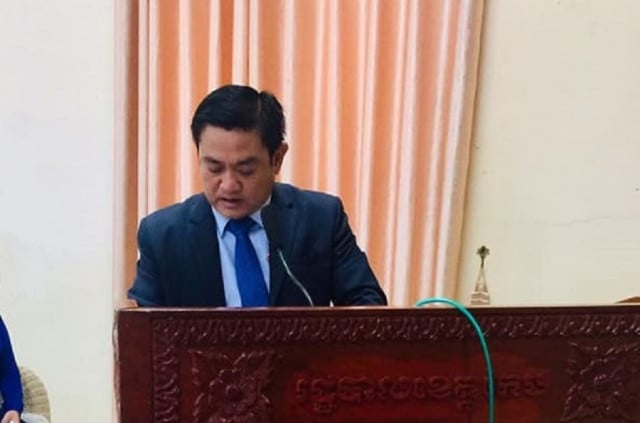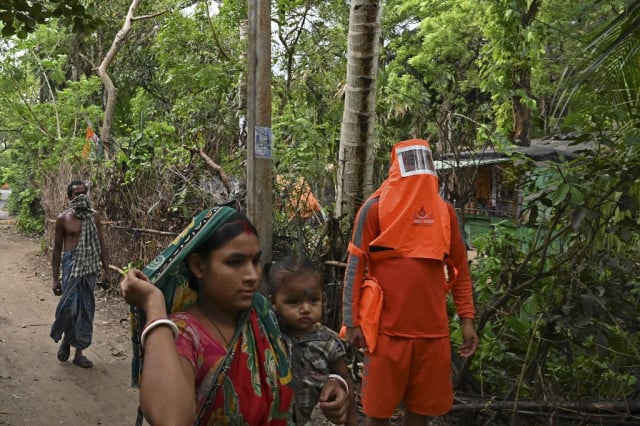“Talk to Stop Littering” Campaign Launched to Raise Waste-Disposal Awareness

- By Teng Yalirozy
- March 11, 2023 4:05 PM
PHNOM PENH — The “Talk to Stop Littering” campaign was launched on March 10 to help reduce the one-time use of plastic items and stop littering and the burning of plastic waste in Cambodia.
The campaign, which is funded by the U.S. Agency for International Development (USAID), is part of the agency’s Green Future project meant to encourage Cambodians to adopt new attitudes and practices regarding trash disposal.
“Individuals can play a large role in reducing the negative impacts of littering,” said USAID Acting Mission Director Hanh Nguyen.
Littering affects human health, wildlife, as well as property values and economic activity, she said. And this is a problem that a great many countries face: In United States alone, the authorities spend about $11.5 billion a year to clean up litter, Ms. Hanh Nguyen said. “I encourage all Cambodians to talk to your friends and family members and be role models in reducing the amount of litter we produce,” she added.
During the campaign, online platforms will be used to better reach and inform people, and offer techniques through videos and other information tools to help them manage waste and trash. Scientific data on the effects of littering will also be provided.
Kim Seth, director general of Phnom Penh Solid Waste Management Authority, said the launch of this campaign is an initiative that may help increase the knowledge and spread awareness among the public as to disposing of their waste.
This will also contribute to promoting a clean environment and daily solid-waste management among young people, he said.
Everyone has the responsibility to preserve the environment in Cambodia to ensure people a healthy lifestyle, a clean home, and a clean city, said Kith Chankrisna, advisor to the Minister of Environment.
“We urge all people across Cambodia to dispose of [garbage and] separate trash correctly in the trash bins, and to join the Cambodian government’s efforts in implementing effective waste management measures toward achieving a waste-free Cambodia,” Chankrisna said.
Cambodia produces about 10,000 tons of waste every day and, while this amount keeps increasing, only 64 percent is sent to landfills, Environment Ministry spokesperson Neth Pheaktra said, adding that the remaining 36 percent is carelessly dumped at various locations, including in water and at public areas.
There are 112 dump sites for trash and solid waste across the country, and 673 waste purchasing places, according to a report issued by the General Department of Administration for Nature Conservation and Protection at the ministry.
However, some communes in provinces do not have enough drop-off locations used as landfill sites, and the majority of dumping sites are empty spaces. Currently, only 6 percent of the total amount of garbage produced is recycled.
The partners of the “Talk to Stop Littering” campaign include the Ministry of Environment, Phnom Penh Municipality, youth groups, conservation partners as well as the private sector and major industry leaders.
USAID has contributed $100 million to the environmental and natural resources protection efforts in Cambodia.















